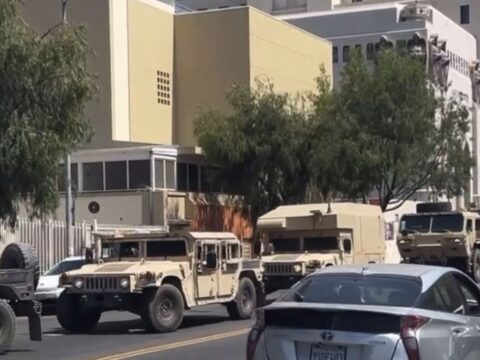
In addition to wrinkles and arthritis, depending on what community one lives in, aging might also mean losing your independence when it comes to getting from A to B, and more importantly, doing so safely.
Since its launch in 2013, L.A. Metro’s On the Move Riders Program [OTMRPO] has been empowering older adults to confidently navigate public transportation across the county. Through workshops, events, and tours, the program educates seniors on using Metro’s system. Participants aged 62+ who sign up qualify for discounted fares, $0.35 off-peak, and $0.75 peak hours, down from the regular $1.75 base fare using their TAP cards.
While the idea of connecting seniors across the LA grid is charming, recent incidents involving violence on the Metro have plunged the public into fear.
Enter the Metro Ambassadors
“Metro Ambassadors are here to support riders on Metro buses, trains, and stations, connect you to resources, and report maintenance and safety concerns. Metro Ambassadors are one part of our multilayer plan to improve public safety, combined with a team that includes security and law enforcement, homeless and mental health outreach workers, and cleaning crews,” it says on the metro website.
Moving across the bus and rail system, Metro Ambassadors can always be spotted in their lime green polo shirts and black pants and are ready to help. They support older adults while navigating the system and report any maintenance, cleanliness, safety issues, a mess on a bus or train, or a safety incident. Metro Ambassadors are supposed to be the eyes and ears on the system that help respond to issues more quickly.
Is It Possible to Restore Public Confidence After Recent Incidents?
Despite the new fleet of Metro Ambassadors, violent incidents on Metro persist, including most recently, a 70-year-old man stabbed by another rider on April 13th in Silverlake and an attack on the Metro B Line in Studio City on April 22nd that took the life of 66-year-old Mirna Soza.
As riders took to social media to demand answers, Metro declared they would take measures to increase rider and driver safety. Metro Board Chair Mayor Karen Bass stated that she herself no longer feels the Metro system is safe and that she is currently working with Metro board members to increase patrol and visibility of law enforcement on buses and trains.
“We have to act. It is clearly unacceptable, and we have to act aggressively. We can look at who it was, why, and all of that, but it is most important that we act, and we will be doing that,” Mayor Karen Bass declared in a recent press conference.
No sooner than the press conference was over, another attack, just a day later on Slauson Avenue, took the life of another rider on the Metro.
If at first you don’t succeed…
In an effort to thwart crime, Metro has proposed a $9 billion budget for 2025, mentioning hiring 53 more Transit Security Officers to protect riders and employees and enforce their Code of Conduct.
This week, Metro announced that 17 new Transit Security Officers (TSOs) joined their team after successfully passing their background checks and physical fitness tests.
This newest TSO class includes both TSO I and TSO II officers who are now undergoing a mandatory six-week training program. Once trained, they will join Metro’s Bus Riding Teams, along with patrolling the rail system, to better ensure everyone follows the rules and pays fares.
With these new hires, they now have 182 TSOs within Metro’s ranks. Over the past 60 days, SSLE has conducted more than 100 interviews to fill remaining vacancies, with another cohort set to begin in early June, looking to eventually bring their total to 299 TSOs—an 86% increase since FY23.
While recent safety concerns have shaken public trust, Metro’s commitment to rider safety through increased security measures, ambassadors, and discounted fares for seniors seems to offer a glimpse of an optimistic future where riders of all ages can move confidently throughout the city’s vast public transportation network.
![]()



















